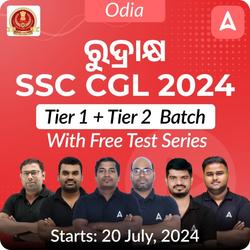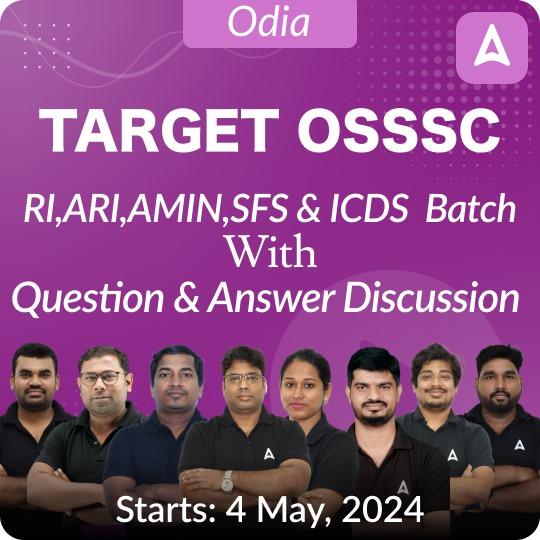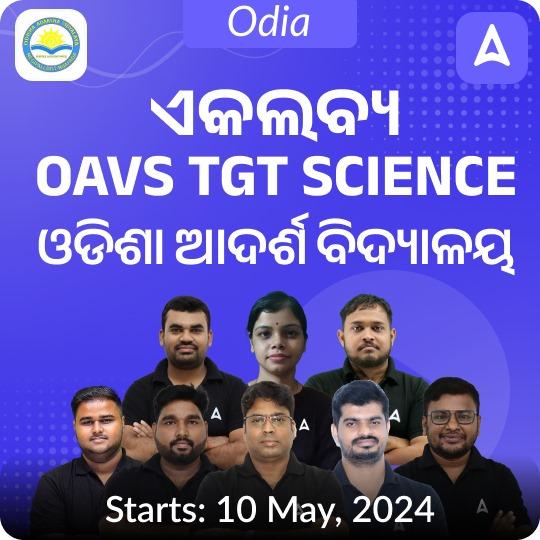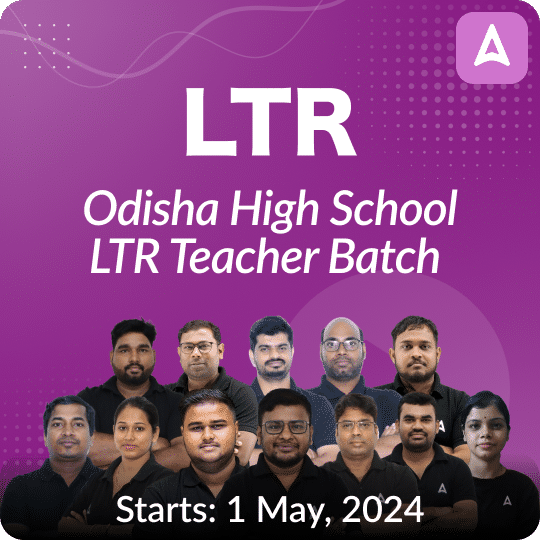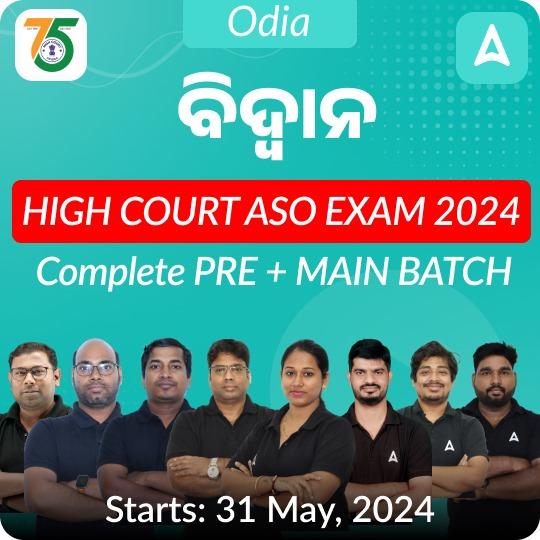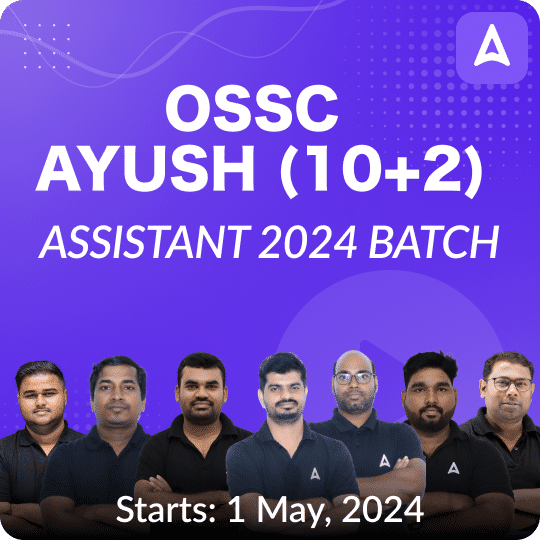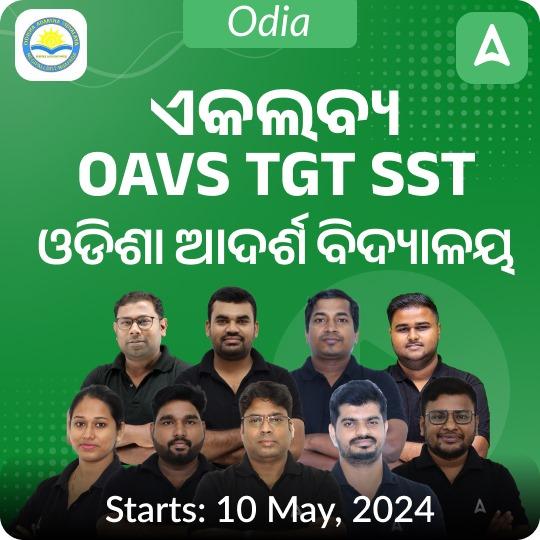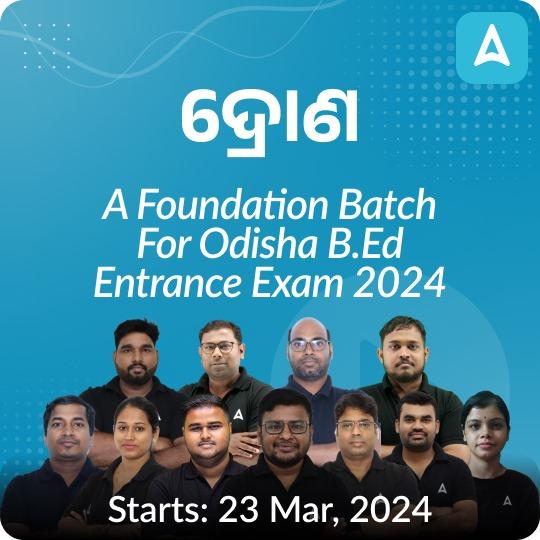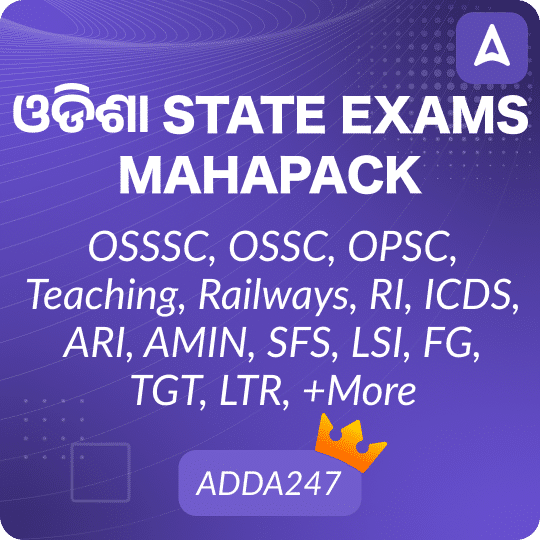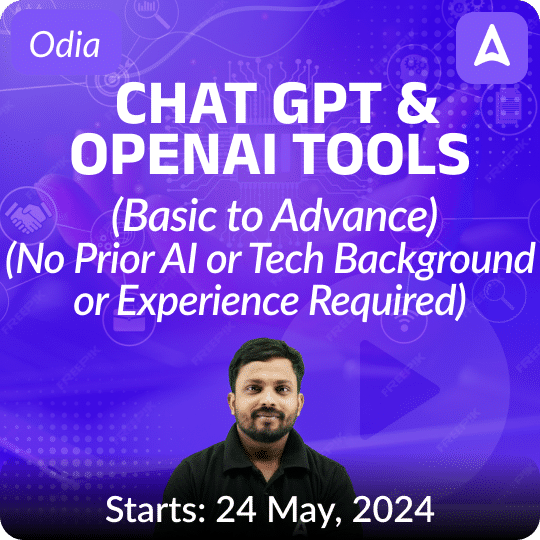General Science forms an essential part of many competitive exams in India, including those conducted by the Odisha Sub-ordinate Staff Selection Commission (OSSSC) for various positions like Revenue Inspector (RI), Assistant Revenue Inspector (ARI), Amin, SFS, and ICDS Supervisor. To excel in these exams, candidates must have a strong grasp of fundamental scientific concepts. Here, we present the top 30 General Science multiple-choice questions (MCQs) to help candidates prepare effectively.
Top 30 General Science MCQS For OSSSC RI,ARI, Amin, SFS, ICDS Supervisor
- The longest bone present in the human body is:
(a) Humerus
(b) Tibia
(c) Femur
(d) Radius
Ans: (c) Femur - The longest muscle present in the human body is:
(a) Biceps brachii
(b) Triceps brachii
(c) Sartorius
(d) Rectus femoris
Ans: (c) Sartorius - The smallest organ in the human body is:
(a) Thyroid gland
(b) Pineal gland
(c) Pituitary gland
(d) Adrenal gland
Ans: (b) Pineal gland - Which of the following elements is essential for the synthesis of proteins in plants?
(a) Nitrogen
(b) Phosphorus
(c) Potassium
(d) Magnesium
Ans: (a) Nitrogen - What is the main constituent of biogas?
(a) Methane
(b) Ethane
(c) Propane
(d) Butane
Ans: (a) Methane - Which vitamin is synthesized in the human body when exposed to sunlight?
(a) Vitamin A
(b) Vitamin B
(c) Vitamin C
(d) Vitamin D
Ans: (d) Vitamin D - What is the chemical formula for table salt?
(a) NaCl
(b) KCl
(c) CaCl2
(d) Na2CO3
Ans: (a) NaCl - Which part of the human brain is responsible for regulating balance and coordination?
(a) Cerebrum
(b) Cerebellum
(c) Medulla
(d) Pons
Ans: (b) Cerebellum - The study of tissues is known as:
(a) Cytology
(b) Histology
(c) Mycology
(d) Pathology
Ans: (b) Histology - Which gas is released during the process of photosynthesis?
(a) Carbon dioxide
(b) Oxygen
(c) Nitrogen
(d) Hydrogen
Ans: (b) Oxygen - What is the pH value of pure water?
(a) 5
(b) 6
(c) 7
(d) 8
Ans: (c) 7 - Which is the most abundant gas in the Earth’s atmosphere?
(a) Oxygen
(b) Nitrogen
(c) Carbon dioxide
(d) Argon
Ans: (b) Nitrogen - What is the primary function of red blood cells?
(a) To fight infections
(b) To transport oxygen
(c) To clot blood
(d) To regulate body temperature
Ans: (b) To transport oxygen - Which element is used as a moderator in a nuclear reactor?
(a) Uranium
(b) Thorium
(c) Graphite
(d) Plutonium
Ans: (c) Graphite - Which planet is known as the “Red Planet”?
(a) Venus
(b) Mars
(c) Jupiter
(d) Saturn
Ans: (b) Mars - The hardness of minerals is measured by which scale?
(a) Richter scale
(b) Mohs scale
(c) Beaufort scale
(d) Decibel scale
Ans: (b) Mohs scale - Which vitamin is also known as ascorbic acid?
(a) Vitamin A
(b) Vitamin B
(c) Vitamin C
(d) Vitamin D
Ans: (c) Vitamin C - What is the process of cell division in somatic cells called?
(a) Meiosis
(b) Mitosis
(c) Cytokinesis
(d) Apoptosis
Ans: (b) Mitosis - Which acid is found in the stomach?
(a) Hydrochloric acid
(b) Sulfuric acid
(c) Acetic acid
(d) Nitric acid
Ans: (a) Hydrochloric acid - What is the main function of chlorophyll in plants?
(a) Absorb water
(b) Absorb sunlight
(c) Absorb nutrients
(d) Absorb carbon dioxide
Ans: (b) Absorb sunlight - Which type of blood vessel carries blood away from the heart?
(a) Veins
(b) Arteries
(c) Capillaries
(d) Venules
Ans: (b) Arteries - What is the chemical name for baking soda?
(a) Sodium carbonate
(b) Sodium bicarbonate
(c) Sodium hydroxide
(d) Sodium chloride
Ans: (b) Sodium bicarbonate - What is the normal body temperature of a human being in Celsius?
(a) 36°C
(b) 37°C
(c) 38°C
(d) 39°C
Ans: (b) 37°C - Which part of the cell is responsible for generating energy?
(a) Nucleus
(b) Ribosome
(c) Mitochondria
(d) Endoplasmic reticulum
Ans: (c) Mitochondria - Which disease is caused by the deficiency of Vitamin B1?
(a) Scurvy
(b) Rickets
(c) Beriberi
(d) Pellagra
Ans: (c) Beriberi - Which organ in the human body produces insulin?
(a) Liver
(b) Pancreas
(c) Kidney
(d) Stomach
Ans: (b) Pancreas - Which planet is closest to the sun?
(a) Venus
(b) Mars
(c) Mercury
(d) Jupiter
Ans: (c) Mercury - Which of the following is a non-renewable resource?
(a) Solar energy
(b) Wind energy
(c) Coal
(d) Hydroelectric energy
Ans: (c) Coal - What is the most abundant element in the Earth’s crust?
(a) Oxygen
(b) Silicon
(c) Aluminum
(d) Iron
Ans: (a) Oxygen - Which metal is the best conductor of electricity?
(a) Gold
(b) Silver
(c) Copper
(d) Aluminum
Ans: (b) Silver - Which gas is commonly known as laughing gas?
(a) Carbon dioxide
(b) Nitrogen
(c) Nitrous oxide
(d) Sulfur dioxide
Ans: (c) Nitrous oxide



